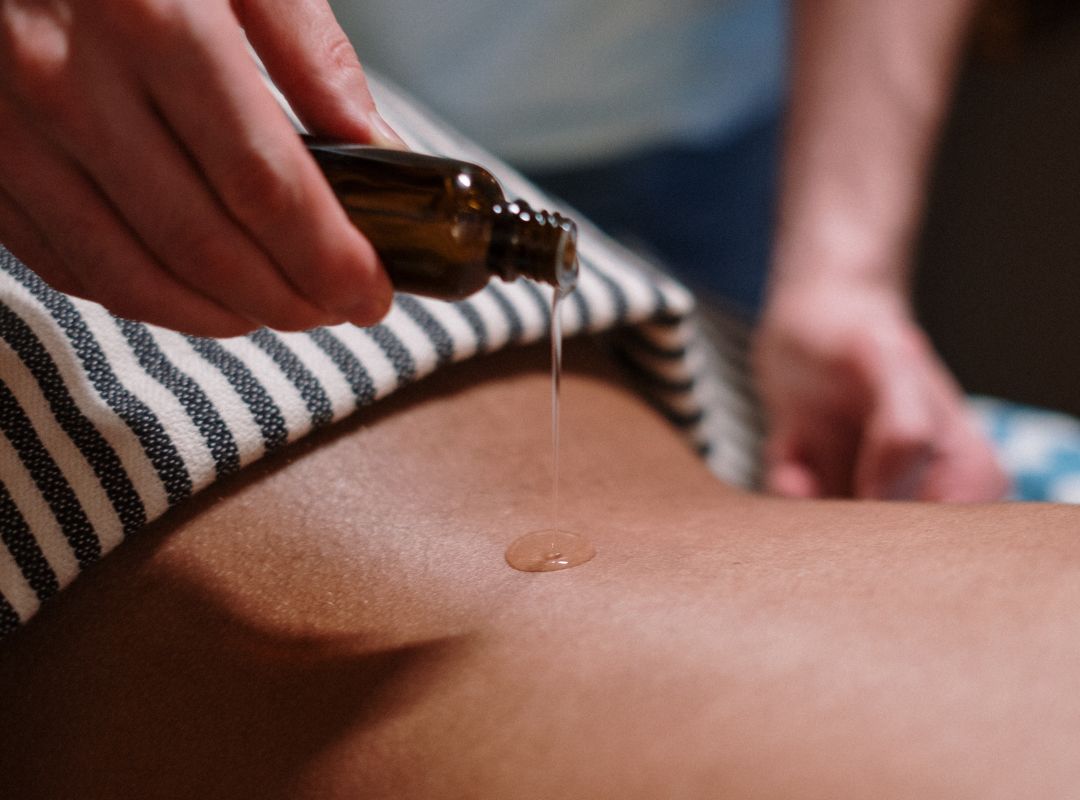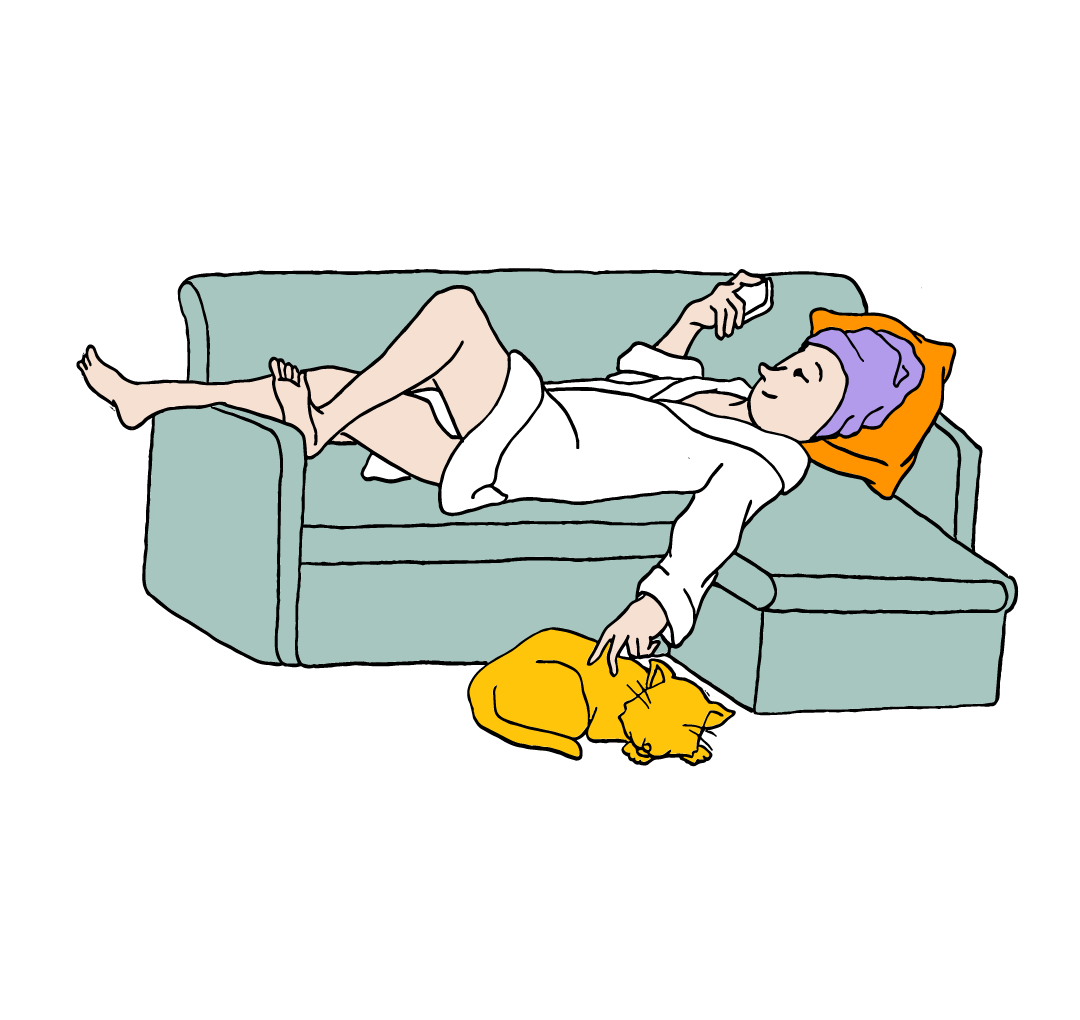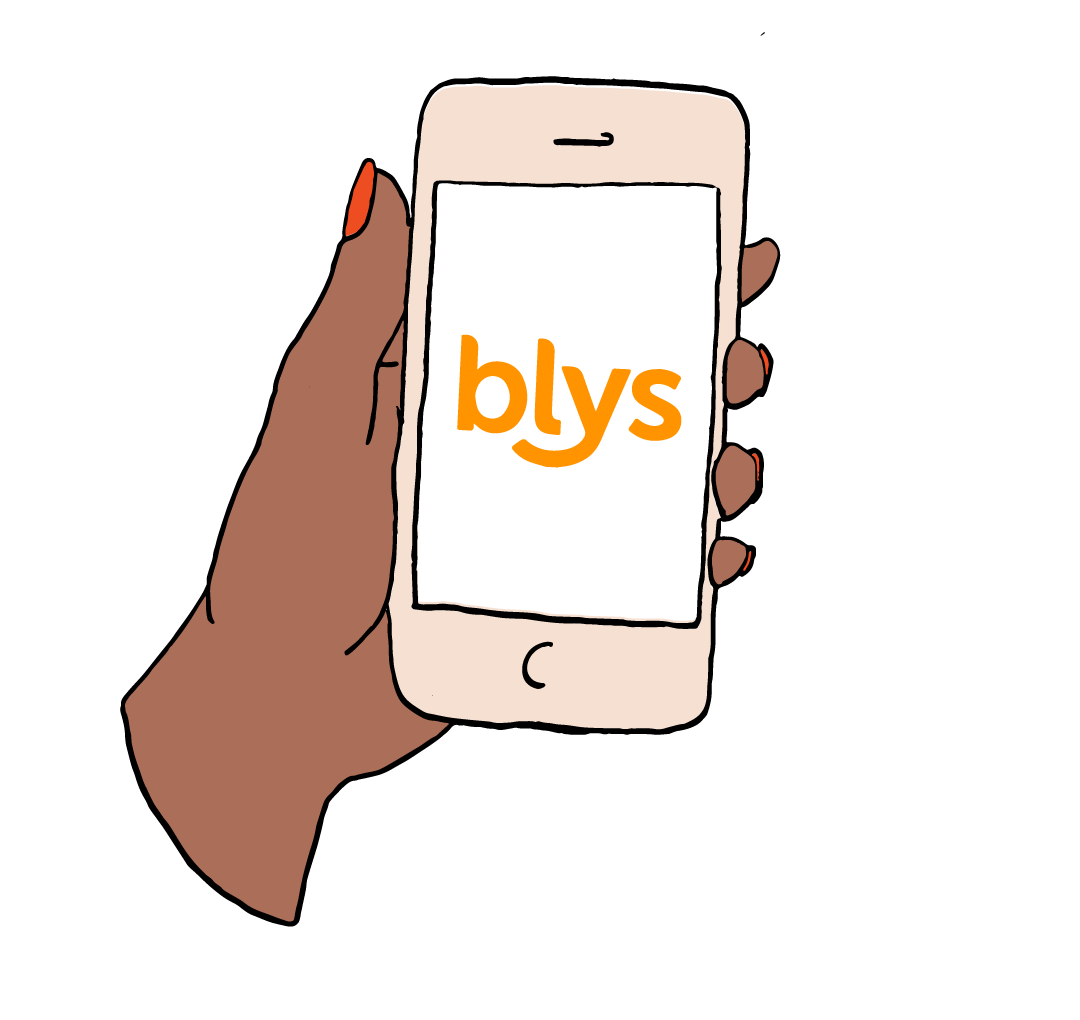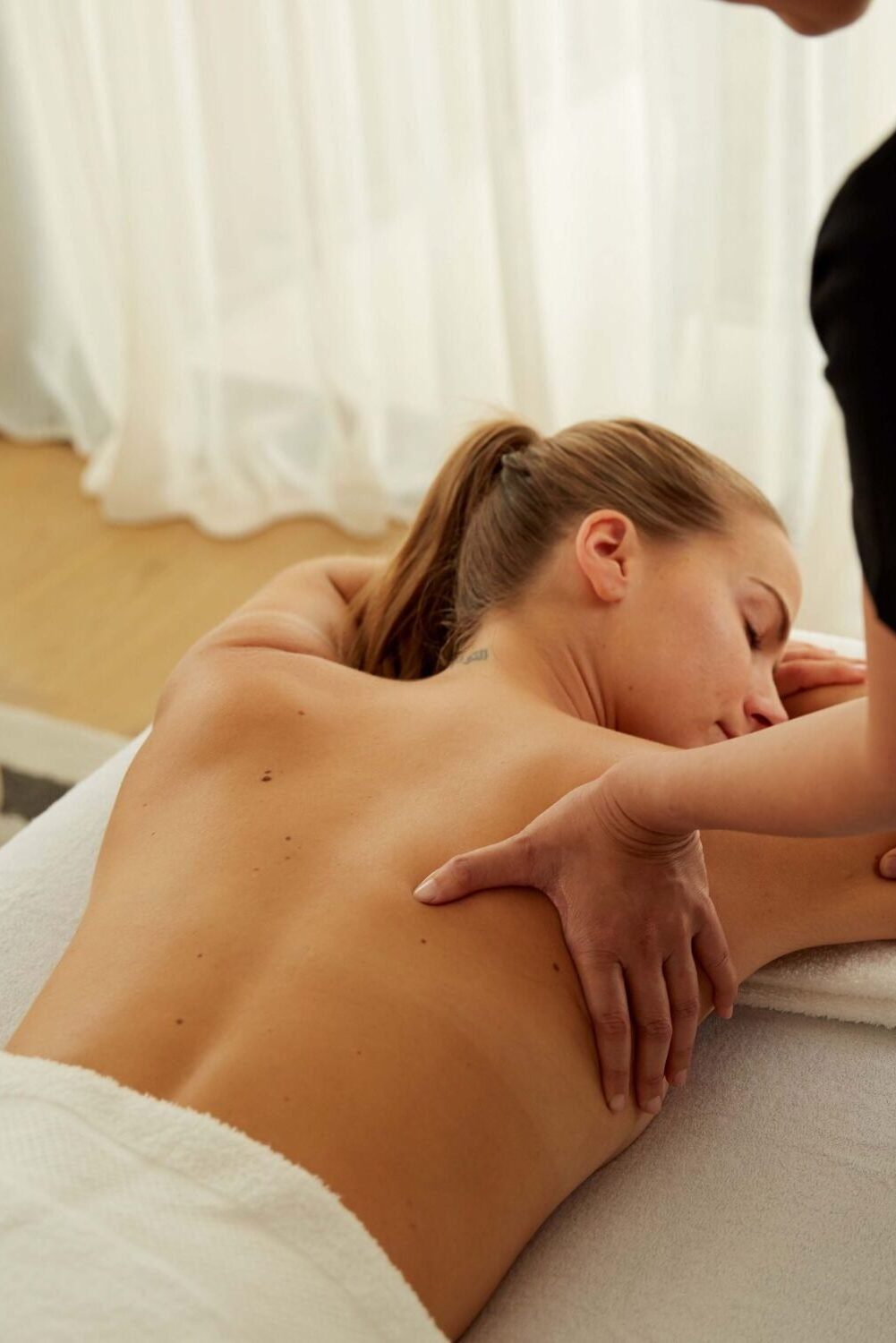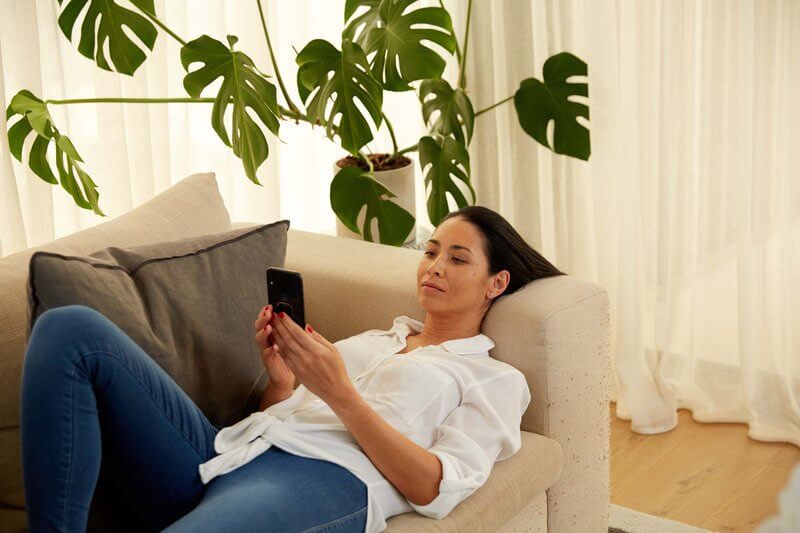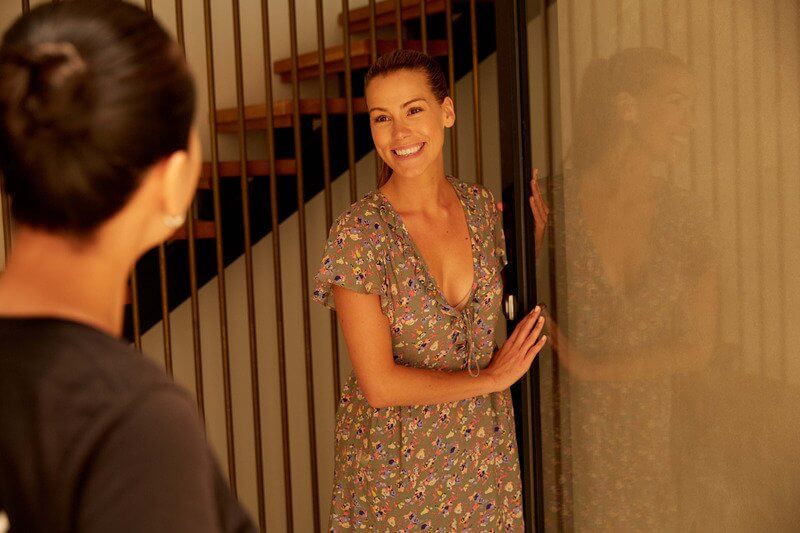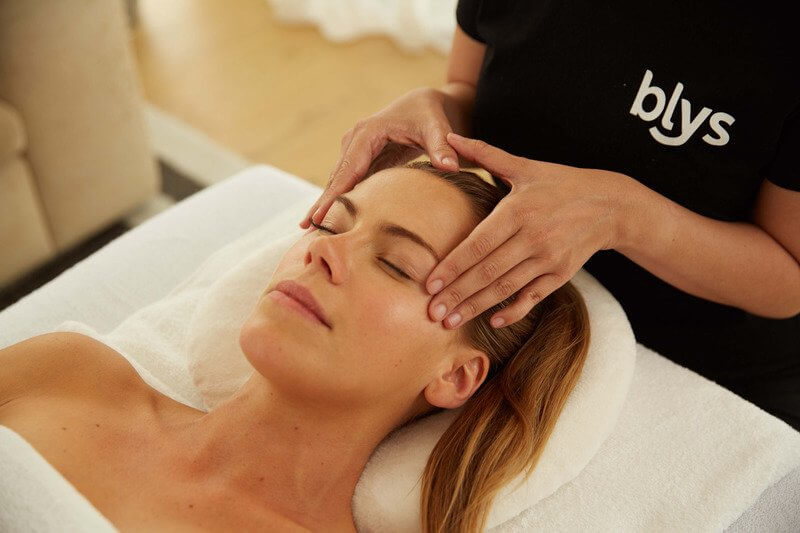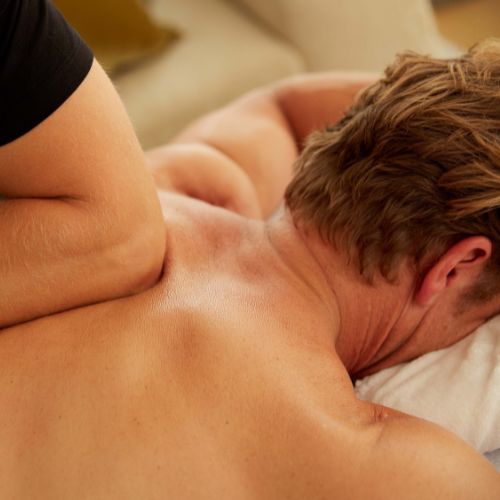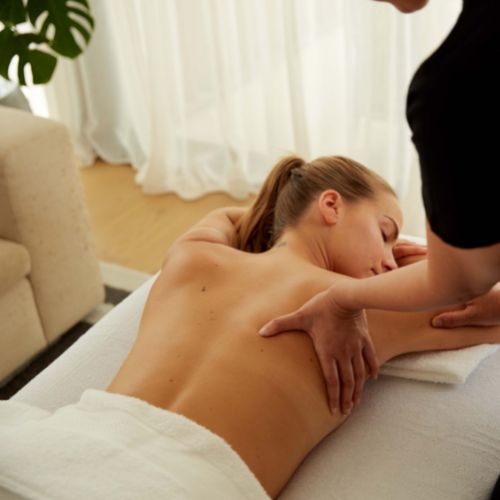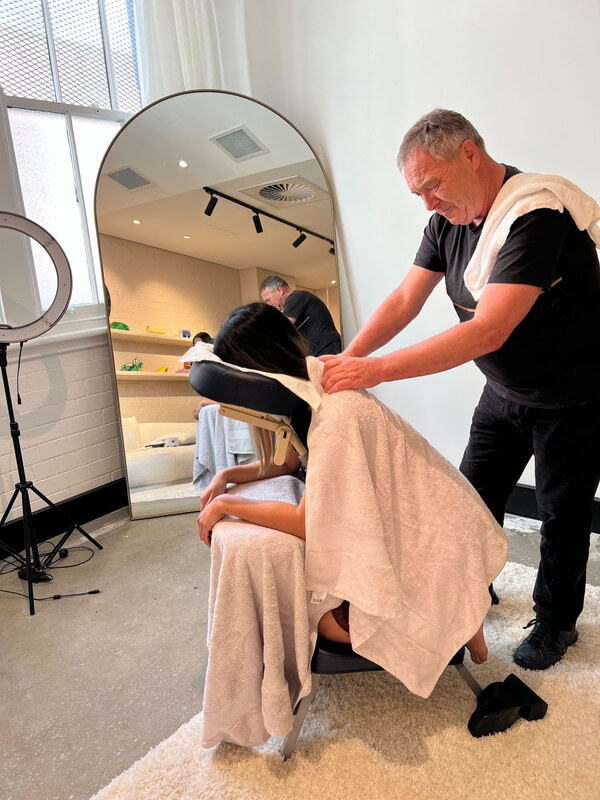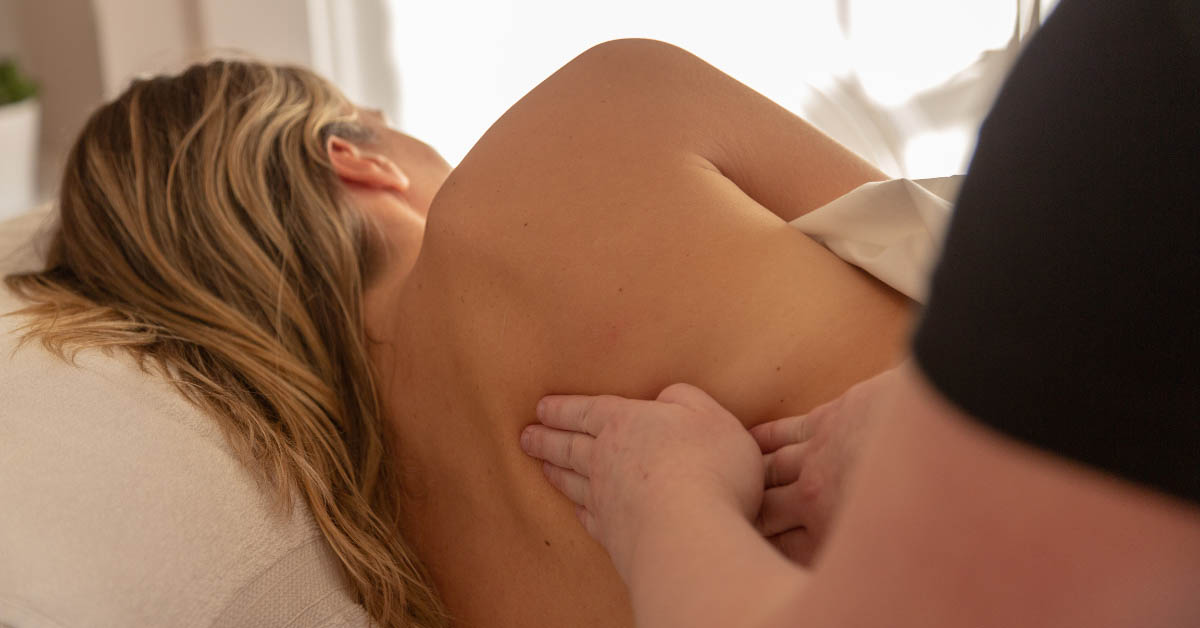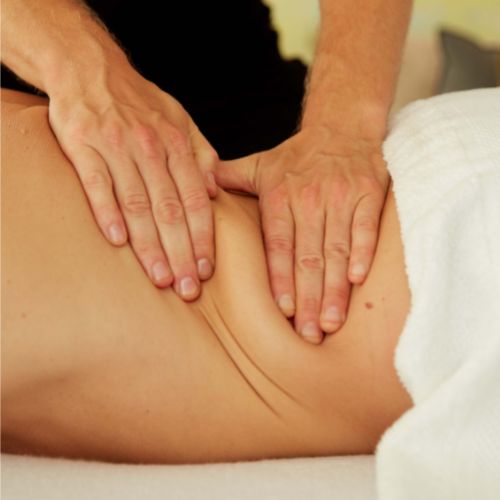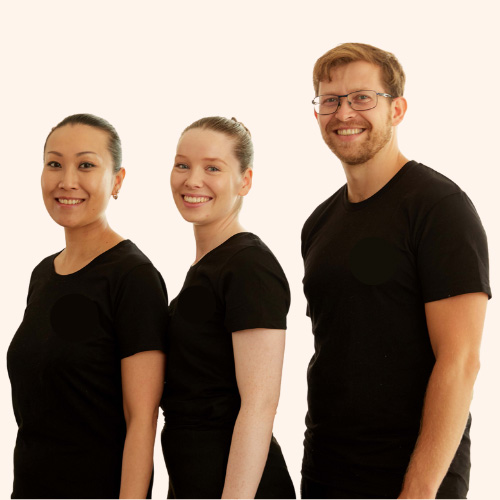Frequently Asked Questions
What essential oils are used in an aromatherapy massage?
Some of the most common essential oils used in an aromatherapy massage are lavender, peppermint, lemongrass, orange, frankincense, rosemary and tea tree. You can find a more complete list of essential oils and their properties on the blog.
Who would benefit from an aromatherapy massage?
You can add aromatherapy to any of our regular massage styles to customise your massage experience and maximise your relief. Different essential oils will have different properties and effects. Your massage therapist will tailor your aromatherapy session to your needs and massage style.
An aromatherapy massage is great for anyone struggling with stress, anxiety or insomnia. It is also great for muscular relief, boosting immunity and healing.
Who should not get an aromatherapy massage?
As with all physical therapies, you should always consult your health care professional prior to booking a massage. Regarding aromatherapy, you must consult your doctor if you are pregnant, hypoglycemic, asthmatic, epileptic, experience any other adverse health conditions or have recently undergone surgery.
You should not get an aromatherapy massage if you have open wounds or experience allergic reactions.
What happens during aromatherapy massage?
During an aromatherapy massage, your therapist will add a few drops of essential oils to the massage oil, which gets absorbed by your skin. They may also hold their hands near your face with a little oil and ask you to breathe in the scent through your nose for a more soothing effect. It’s a nice way to engage your senses while loosening up those muscles.
What techniques are used in aromatherapy massage?
During an aromatherapy massage, your massage therapist will add a few drops of essential oils to the massage oil, which will be spread over your body and absorbed through your skin. They may also rub some essential oil on their hands and hold them near your nose for a short period, allowing you to inhale the soothing aroma.
How does aromatherapy affect the brain?
Many studies have shown that breathing in essential oils can improve your mood, increase your memory and decreases stress.
Are aromatherapy massages worth it?
Aromatherapy massages can be worth it for individuals seeking both the physical benefits of a massage and the potential therapeutic effects of essential oils, such as relaxation or stress relief.
How should I prepare for my aromatherapy massage?
If you have any aromatic requests, we suggest you leave these in the Notes section during the booking process to ensure we match you with a therapist who can meet your needs.
Hydrate before and after your massage; dehydration impairs the body’s ability to flush away toxins. Water is key! If you’re going to eat, we recommend having something small no less than two hours prior to your massage. That’s it – your massage therapist will handle the rest.
What can I expect from my aromatherapy massage?
Your therapist will always strive to make you feel as secure, safe and comfortable as possible while they are in your home. Feel free to communicate openly with them – they are a professional! You should expect your aromatherapy massage to be a pleasant, full-body experience that engages your senses.
Aromatherapy is a wonderful addition to any massage and adds to the overall relaxing, restoring, energising experience.
How shall I feel after an aromatherapy massage?
The effects of an aromatherapy massage are determined by the massage style and the essential oils used. You may feel relaxed, energised, mobile, limber or focused – any number of positive feelings!
Can I get an aromatherapy massage near me?
You sure can! To book your next aromatherapy massage at home, head to the Blys website or download the app and have a professional therapist delivered directly to you.
How long does an aromatherapy session last?
With Blys you can book an aromatherapy massage that lasts 60 minutes, 75 minutes, 90 minutes or 120 minutes.
How often should you get an aromatherapy massage?
This is completely up to you, many enjoy the benefits of aromatherapy massage weekly and monthly.
What is aromatherapy good for?
An aromatherapy massage is perfect for people who want to relieve muscle tension and pain, reduce stress and anxiety and improve sleep quality and mental wellbeing.
Does aromatherapy work for anxiety?
Many people find that aromatherapy with essential oils can help promote relaxation and relieve stress and anxiety.
How does aromatherapy relieve stress?
The essential oils used in aromatherapy massage trigger messages to your brain’s limbic system, which controls your emotions, to help with calm and clarity. That’s why aromatherapy is commonly used to treat a number of mental and physical conditions such as stress and anxiety, headaches and digestive issues.
What does an aromatherapy massage do?
An aromatherapy massage combines the benefits of traditional massage techniques with the inhalation and absorption of essential oils to promote relaxation, reduce stress, alleviate muscle tension, and enhance overall well-being. The specific effects can vary depending on the chosen essential oils, which may offer additional therapeutic benefits such as improved mood, better sleep, or relief from specific ailments.
How are essential oils used in aromatherapy massage?
The most common way to use essential oils during a massage is to add a few drops to your massage oil. This will disperse and allow the body to absorb it. Your massage therapist may also rub some of the essential oil on their hands and hold them over your face for a short period of time and ask you to take some deep breaths so that you can breathe in the oils.
What’s the difference between a regular or relaxation massage and an aromatherapy massage?
The key difference between a regular or relaxation massage and an aromatherapy massage is the use of essential oils. In an aromatherapy massage, essential oils are added to the massage oil or lotion and applied to the skin. These oils are absorbed through the skin and inhaled, providing additional therapeutic benefits like relaxation, stress reduction, improved mood, or relief from specific ailments. A regular or relaxation massage, on the other hand, focuses primarily on manipulating soft tissues to promote physical relaxation and alleviate muscle tension without the use of essential oils.
